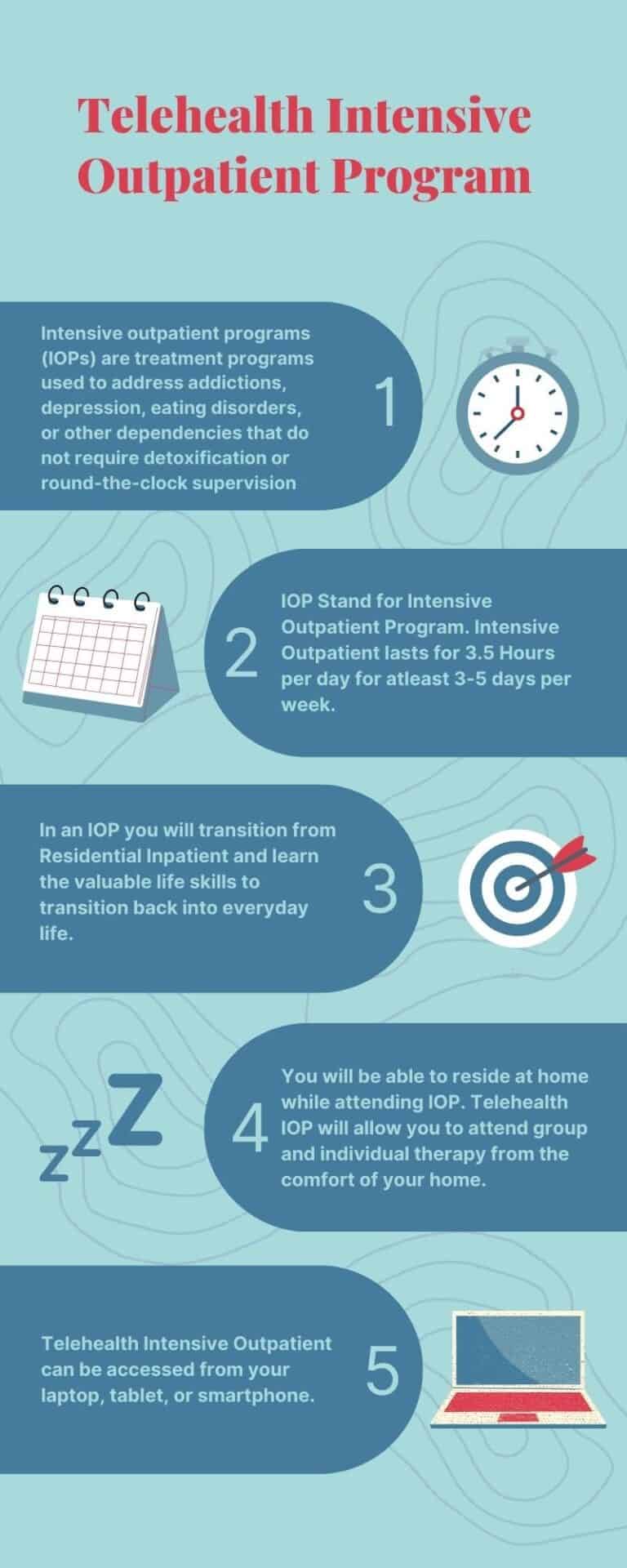Browsing the Complexities of Double Medical Diagnosis Treatment Within an Extensive Outpatient Program Setting
In the world of mental health and addiction therapy, the crossway of dual medical diagnosis provides a nuanced challenge that demands an extensive and tailored technique. Within the confines of an Intensive Outpatient Program (IOP) setting, the complexities of addressing co-occurring mental wellness conditions and material make use of disorders require a fragile equilibrium of experience and sources to navigate. The assimilation of evidence-based techniques, joint initiatives among multidisciplinary groups, and a keen understanding of the one-of-a-kind needs of each person are essential elements in efficiently taking care of twin diagnosis within an IOP structure. By discovering the complexities of twin diagnosis treatment within this intensive outpatient context, a clearer path arises towards all natural and lasting healing for those grappling with these linked obstacles.
Double Medical Diagnosis Summary
What is the relevance of recognizing twin medical diagnosis in mental health and wellness therapy? Dual medical diagnosis describes the co-occurrence of a material use problem and a psychological health problem in an individual. It is important to recognize and resolve this comorbidity as it can dramatically affect the performance of mental health and wellness treatment. Without appropriate identification and management of both problems, people may battle to accomplish enduring recuperation and stability.
Understanding twin medical diagnosis is necessary as it needs a thorough and integrated technique to therapy. By recognizing the interaction between substance usage and psychological health, doctor can customize interventions to meet the distinct requirements of each individual. This all natural strategy not only addresses signs and symptoms however likewise targets underlying variables that add to the twin diagnosis.
Furthermore, unattended dual medical diagnosis can result in a cycle of relapse and aggravating psychological health symptoms. By identifying the complexity of dual medical diagnosis and supplying specialized care, health care experts can support individuals in attaining long-lasting recuperation and enhanced psychological health.
Tailored Treatment Plans
Recognizing the detailed interaction between compound usage conditions and psychological health conditions, the development of tailored treatment plans is paramount in resolving the intricacies of double diagnosis in mental health therapy. Tailored treatment strategies are individualized techniques that think about the unique requirements, obstacles, and objectives of individuals facing dual medical diagnosis. These strategies are developed collaboratively by a multidisciplinary group of experts, consisting of psychiatrists, psychologists, social workers, and addiction professionals, to ensure extensive and incorporated care.
Tailored treatment plans commonly include a mix of therapies, medications, and behavioral interventions that target both the material usage condition and the mental health and wellness condition simultaneously. These plans may consist of cognitive-behavioral therapy, dialectical behavior treatment, medication-assisted treatment, private counseling, group treatment, and family members treatment, to name a few evidence-based interventions. By personalizing treatment methods to specific scenarios, tailored plans can address the source of twin medical diagnosis, advertise long-lasting recuperation, and improve overall lifestyle for individuals having problem with co-occurring disorders.
Integrated Care Technique

Furthermore, the social facet of incorporated care entails attending to environmental factors that may add to the growth or perpetuation of material usage and mental wellness issues. This can include household characteristics, real estate instability, or lack of social assistance. By incorporating social interventions like family members treatment, vocational support, and neighborhood sources, the treatment ends up being much more all natural and tailored to the person's particular demands. Generally, an integrated care method in dual diagnosis therapy within an intensive outpatient program setup aims to give detailed, effective, and individualized treatment to individuals facing co-occurring disorders.
Difficulties in IOP Setting
In the context of dual medical diagnosis therapy within an extensive outpatient program, browsing the intricacies of co-occurring substance usage disorders and psychological wellness problems provides significant challenges. One of the main difficulties in the IOP setup is the coordination of care in between psychological wellness professionals and substance abuse specialists to ensure a detailed therapy strategy. This requires effective interaction, cooperation, and blog a deep understanding of just how these problems engage and affect each other.
Moreover, the fluctuating nature of substance usage problems and psychological health conditions includes an additional layer of intricacy - Intensive Outpatient Program (IOP). Customers in an IOP might experience sudden shifts in their symptoms or compound food cravings, calling for prompt intervention and adjustment of therapy methods. Balancing the strength of therapy and support while permitting clients the versatility to manage their everyday obligations can be a delicate stability to preserve
In addition, dealing with stigma and resistance to treatment within the IOP setting can restrain progress. Some people may be hesitant to disclose their double medical diagnosis or might feel embarrassed, impeding their involvement in the healing procedure. Conquering these obstacles necessitates a helpful and non-judgmental setting that fosters count on and openness.

Collaborative Expert Efforts

Collaborative initiatives likewise check my reference include routine interaction and details sharing among group members to guarantee a natural treatment strategy - Intensive Outpatient Program (IOP). This may entail situation conferences, joint sessions with the person, or shared documentation to track progression and readjust treatment strategies as needed. Furthermore, partnership may consist of involving various other health care experts such as medical care medical professionals or family specialists to offer all natural support to the person. Inevitably, a joined front of specialists working with each other improves the performance of dual medical diagnosis treatment within an intensive outpatient program.
Conclusion
Finally, efficient double medical diagnosis treatment within an intensive outpatient program setting calls for tailored treatment strategies and an integrated treatment approach. Difficulties may emerge in this setting, yet collaborative efforts amongst specialists can aid browse these intricacies. By resolving the distinct needs of people with co-occurring psychological health and wellness and material use disorders, IOP programs can give detailed and all natural care to sustain healing and total well-being.